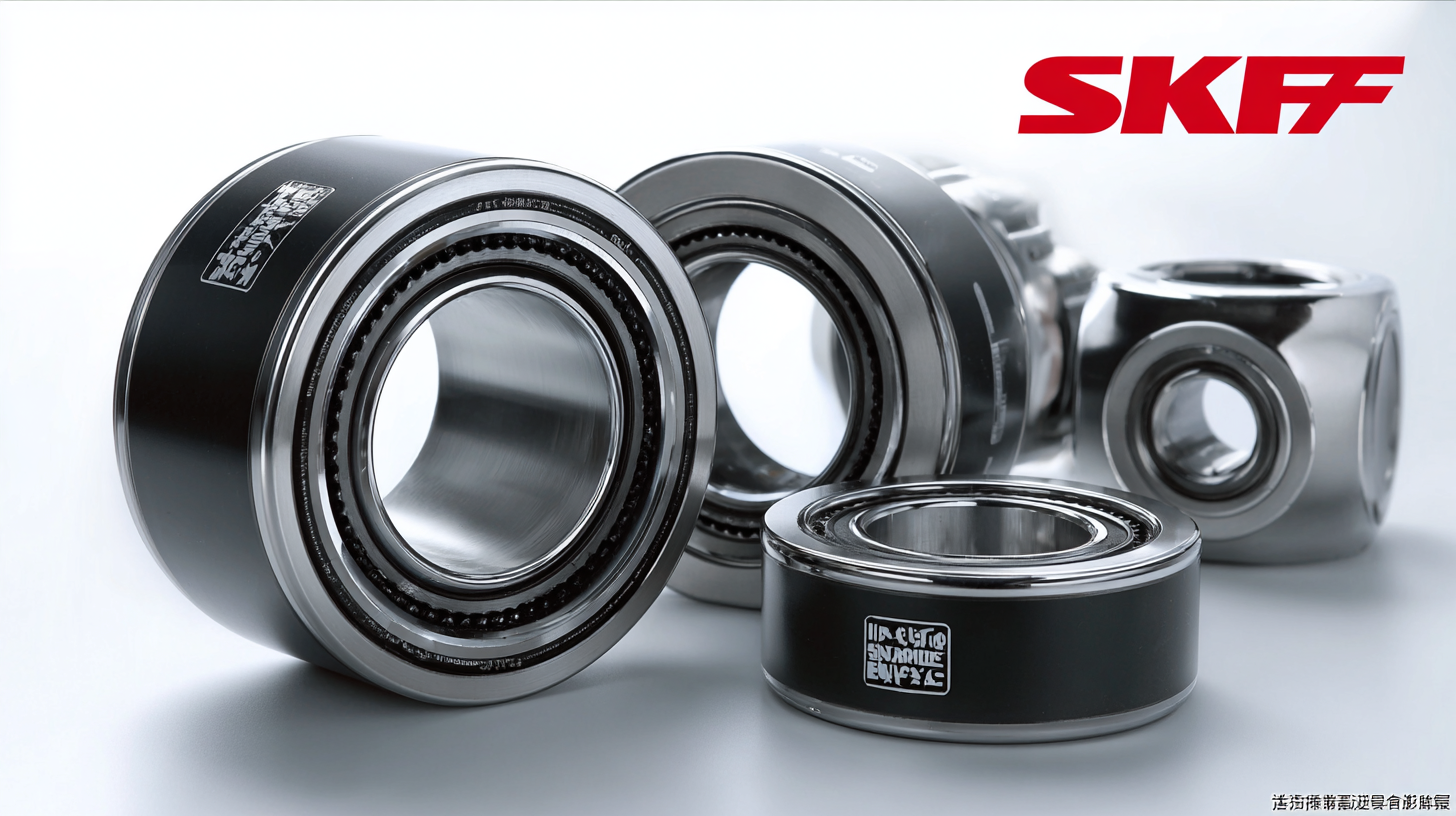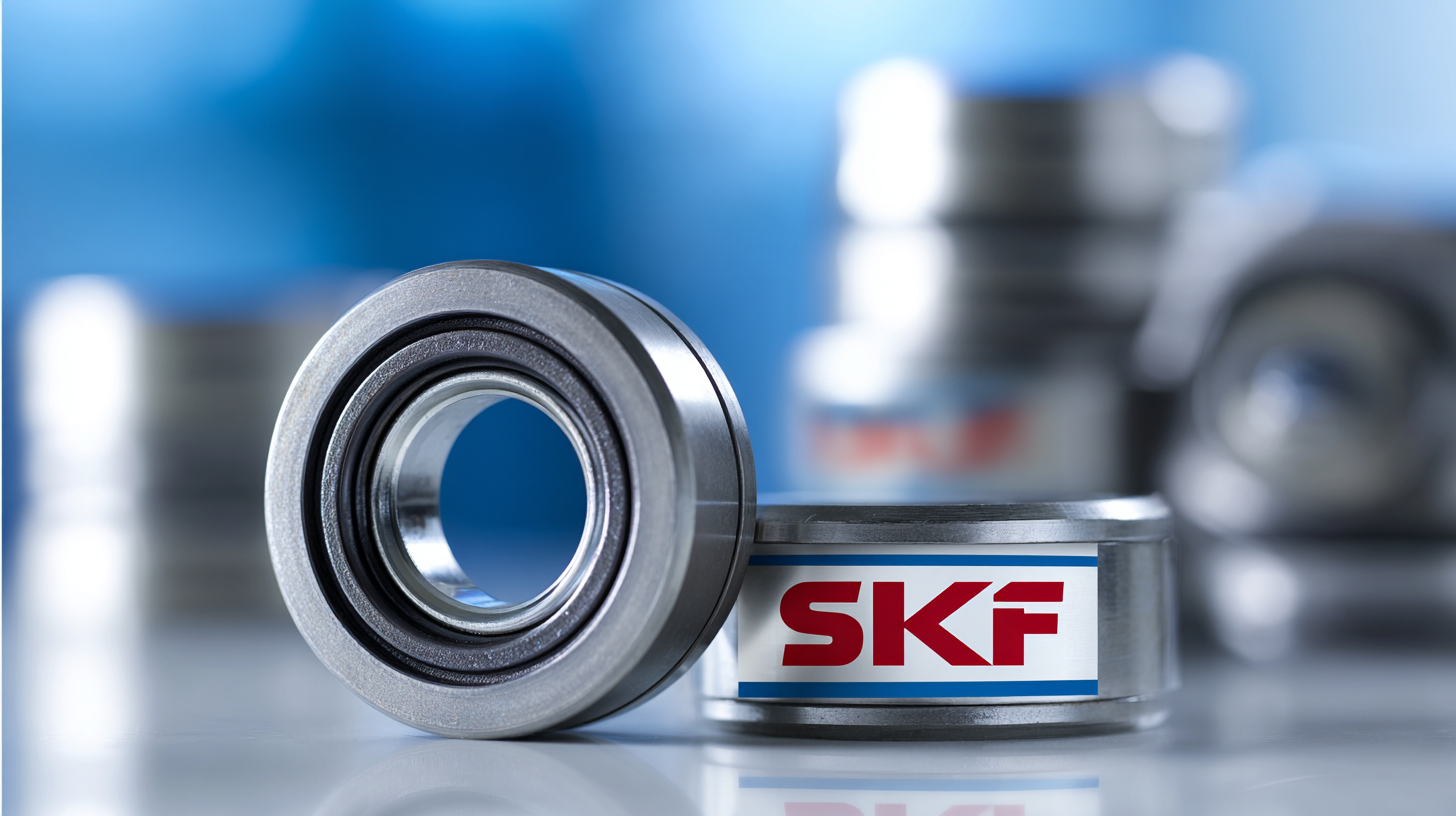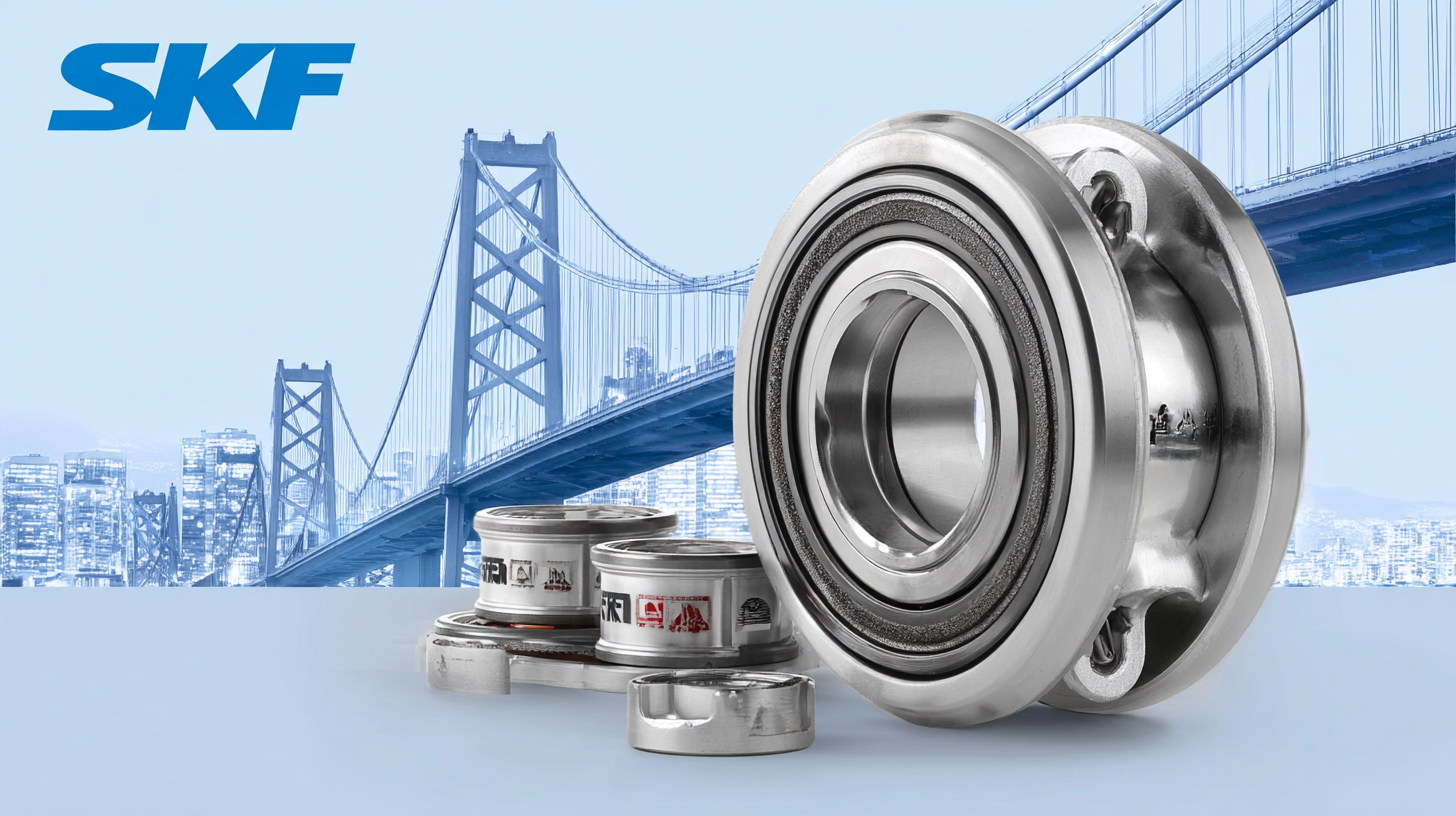Navigating Import Export Certifications for Best SKF Equivalent Bearings Effective Guide
In the world of machinery and engineering, the choice of bearings plays a crucial role in ensuring operational efficiency and longevity. Among the various options available, SKF equivalent bearings have gained prominence due to their reliability and performance. However, navigating the complexities of import and export certifications can be daunting for businesses aiming to source these high-quality components. This guide aims to demystify the certification process while highlighting the benefits of choosing SKF equivalent bearings, including enhanced durability, cost-effectiveness, and compatibility with various equipment. By understanding the requirements and ensuring compliance with international standards, companies can successfully streamline their import-export activities, ultimately leading to superior operational outcomes and increased market competitiveness.
Understanding Import Export Certifications: A Key to Quality Bearings
When dealing with bearings, understanding import and export certifications is crucial for ensuring quality and compliance. These certifications serve as proof that the products meet specific standards, which can vary significantly from one region to another. Importing SKF equivalent bearings without the proper certifications may lead to issues such as product recalls, increased costs, and damage to reputation.
Tip: Always verify the certifications of your suppliers. Request documentation that proves compliance with international quality standards, such as ISO or specific industry-related certifications. This will help build trust and ensure that the bearings you import or export are reliable and safe for use.
Additionally, staying informed about the latest regulatory changes in your target markets is essential. These can affect the certifications needed for importing or exporting bearings. Regularly review the information available on government and industry websites to keep your knowledge up-to-date.
Tip: Join industry forums and networks to exchange best practices and insights on certification trends. Networking with other businesses can provide valuable information on how to navigate import and export certifications more effectively, further ensuring the quality of your bearings.
Navigating Import Export Certifications for Best SKF Equivalent Bearings
Identifying Quality Manufacturers: Choosing the Best SKF Equivalent Bearings
When it comes to sourcing SKF equivalent bearings, the selection of a quality manufacturer is paramount. The market is flooded with numerous options, but not all manufacturers adhere to the stringent quality standards required for optimal performance. To ensure that you're choosing the best, begin by researching manufacturers that are recognized for their reliability and consistency. Look for those who possess industry certifications and accreditations, as these are often indicative of a commitment to quality and excellence.
Additionally, assessing the manufacturer's reputation through customer reviews can provide valuable insights into their products and services. Engaging in direct communication with potential suppliers can also give you a sense of their expertise and willingness to support your needs. Consider inquiring about their manufacturing processes, quality control measures, and testing protocols. This proactive approach not only helps in identifying reliable manufacturers but also establishes a trustworthy relationship, essential for long-term collaboration in sourcing SKF equivalent bearings effectively.
Navigating Import Export Certifications for Best SKF Equivalent Bearings Effective Guide - Identifying Quality Manufacturers: Choosing the Best SKF Equivalent Bearings
| Bearing Type |
Material Type |
Load Rating (kg) |
Operating Temperature (°C) |
Country of Origin |
Certification Compliance |
| Deep Groove Ball Bearing |
Chrome Steel |
500 |
-20 to 120 |
Germany |
ISO 9001 |
| Angular Contact Ball Bearing |
Carbon Steel |
600 |
-30 to 150 |
Japan |
ISO 14001 |
| Self-Aligning Ball Bearing |
Stainless Steel |
450 |
-20 to 130 |
USA |
RoHS |
| Spherical Roller Bearing |
Bronze |
1000 |
-40 to 200 |
China |
SGS Certified |
| Needle Roller Bearing |
Alloy Steel |
350 |
-30 to 140 |
South Korea |
CE Marking |
Analyzing Industry Standards: What Certifications Matter Most for Bearings
When it comes to importing and exporting bearings, understanding the necessary certifications is crucial for ensuring compliance with industry standards. Bearings, especially SKF equivalents, are essential components in various machinery and applications, and the right certifications can significantly impact their performance and reliability. Among the most vital certifications, ISO 9001 and ISO 14001 stand out, as they indicate that the manufacturer adheres to rigorous quality management and environmental management standards, respectively. These certifications offer a benchmark that can help businesses identify trustworthy suppliers and guarantee that the bearings they purchase meet international quality expectations.

Additionally, sector-specific certifications play a key role in determining the suitability of bearings for particular applications. For example, certifications such as the American National Standards Institute (ANSI) and the Society of Automotive Engineers (SAE) provide relevant compliance benchmarks for bearings used in automotive or industrial applications. Businesses should also consider certifications related to safety and performance, such as the Underwriters Laboratories (UL) mark, which signifies that the product has been rigorously tested for safety. By prioritizing these certifications, companies can navigate the complexities of import/export processes while ensuring that they invest in high-quality bearing products that meet the demands of their operational environments.
Essential Metrics: Evaluating Performance Data of SKF Equivalent Bearings
When considering SKF equivalent bearings, evaluating performance data is crucial for ensuring optimal functionality and longevity. According to a report by the National Lubricating Grease Institute (NLGI), bearing failures are predominantly due to lubrication issues, accounting for nearly 36% of failures in industrial applications. Therefore, metrics such as load ratings, speed limits, and operating temperature can significantly affect the performance and reliability of SKF equivalents.
To make informed decisions, it’s beneficial to compare performance metrics against industry standards. For instance, a comparative study by the American Bearing Manufacturers Association (ABMA) found that high-quality equivalent bearings can sustain dynamic loads up to 20% more than their SKF counterparts in specific applications. This highlights the importance of selecting the right equivalent based on rigorous performance evaluations.
Tip: Always assess the coefficient of friction and wear rates specified by manufacturers, as these figures provide valuable insights into the bearing's expected lifespan and efficiency.
Additionally, regularly evaluating vibration and temperature data during operation can identify potential issues before they escalate, optimizing maintenance schedules and ensuring prolonged service life for your bearings.

Navigating Compliance: Best Practices for Importing and Exporting Bearings
When importing and exporting bearings, compliance with international regulations is paramount. Regulatory standards vary significantly across countries, making it essential for businesses to be well-informed about the necessary certifications. Understanding these requirements can streamline the process and prevent costly delays. Familiarity with the specific import and export documentation, such as bills of lading, certificates of origin, and customs declarations, is crucial. This preparation helps ensure that all bearings, including SKF equivalents, meet the stipulated safety and quality standards.
Additionally, partnering with experienced logistics providers can enhance your compliance strategy. These professionals often have in-depth knowledge of tariffs, trade agreements, and local legal requirements, which can be instrumental in navigating complex processes. Ensuring that all bearings are properly labeled and accompanied by the correct certifications not only facilitates smoother customs clearance but also enhances the overall reliability of your supply chain. By adopting these best practices, companies can effectively manage risks and optimize their import-export operations in the bearing industry.

Home
Products
Industrial Bearings
Deep Groove Ball Bearings
Self-Aligning Ball Bearings
Angular Contact Ball Bearings
Cylindrical Roller Bearings
Taper Roller Bearings
Spherical Roller Bearings
Bearing housing or Accessories
Miniature Bearing
Thrust ball bearing
Radial Spherical Plain Bearing
Pillow Block Bearing
Needle Roller Bearings
Automotive Bearings
Agricultural Bearings
Special Material Bearings
Industry Application
About Us
News
Contact Us





